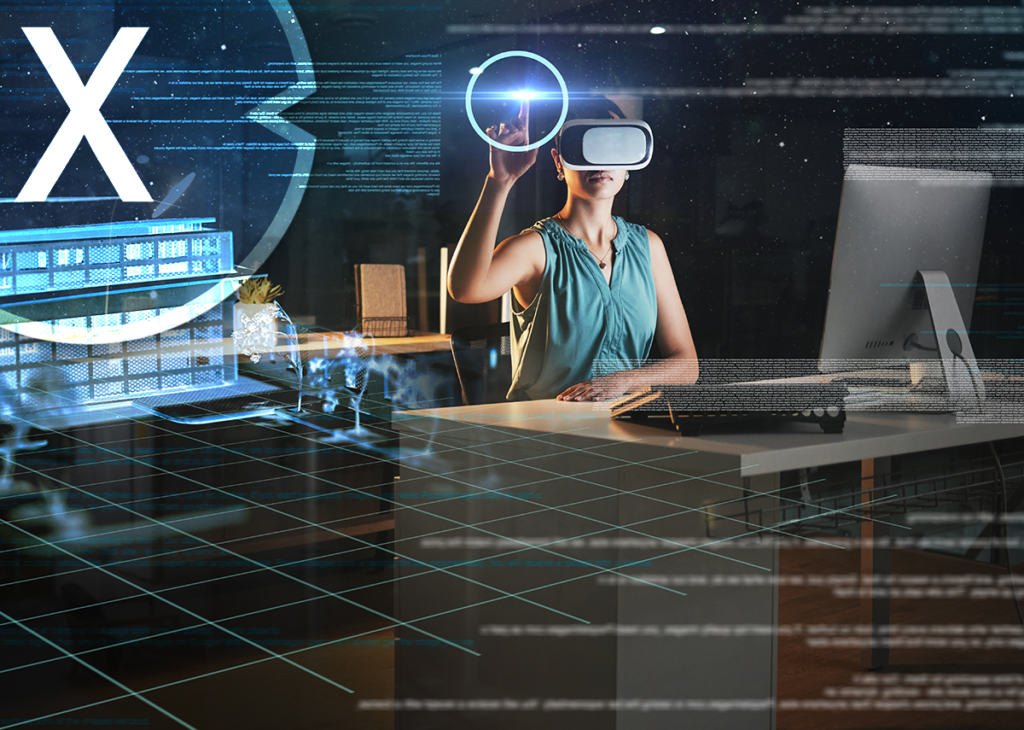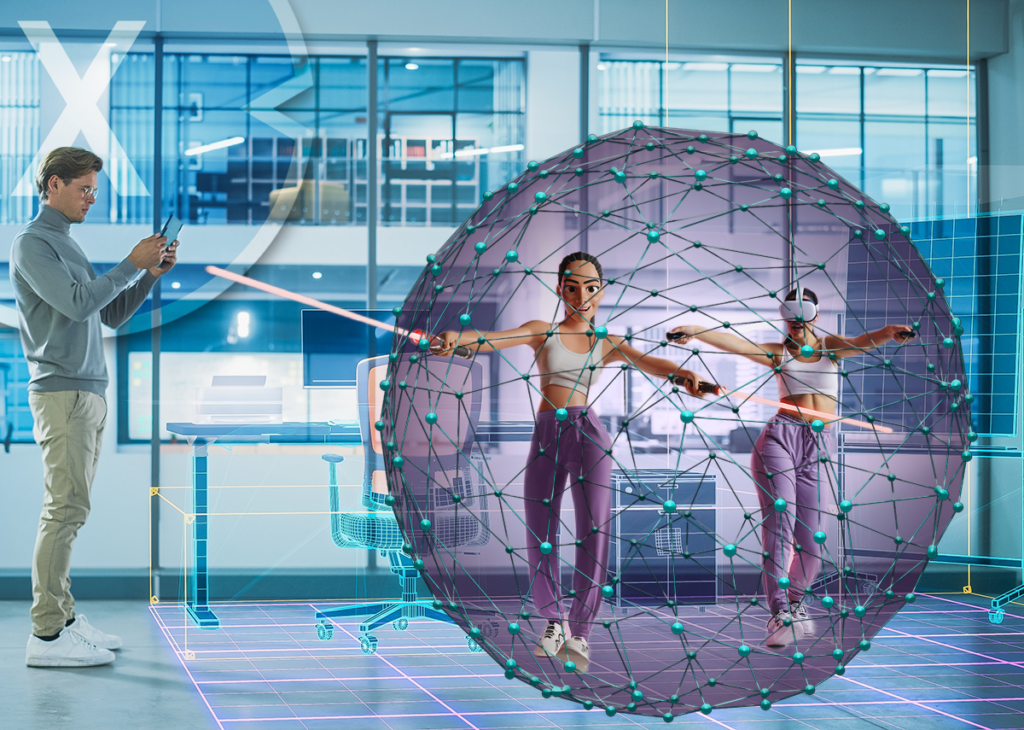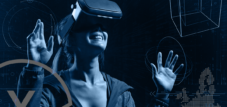Europe's Extended Reality: The EU Commission's first-mover action plan for a lead in the Metaverse & Web 4.0 standards
Language selection 📢
Published on: October 27, 2023 / update from: October 27, 2023 - Author: Konrad Wolfenstein
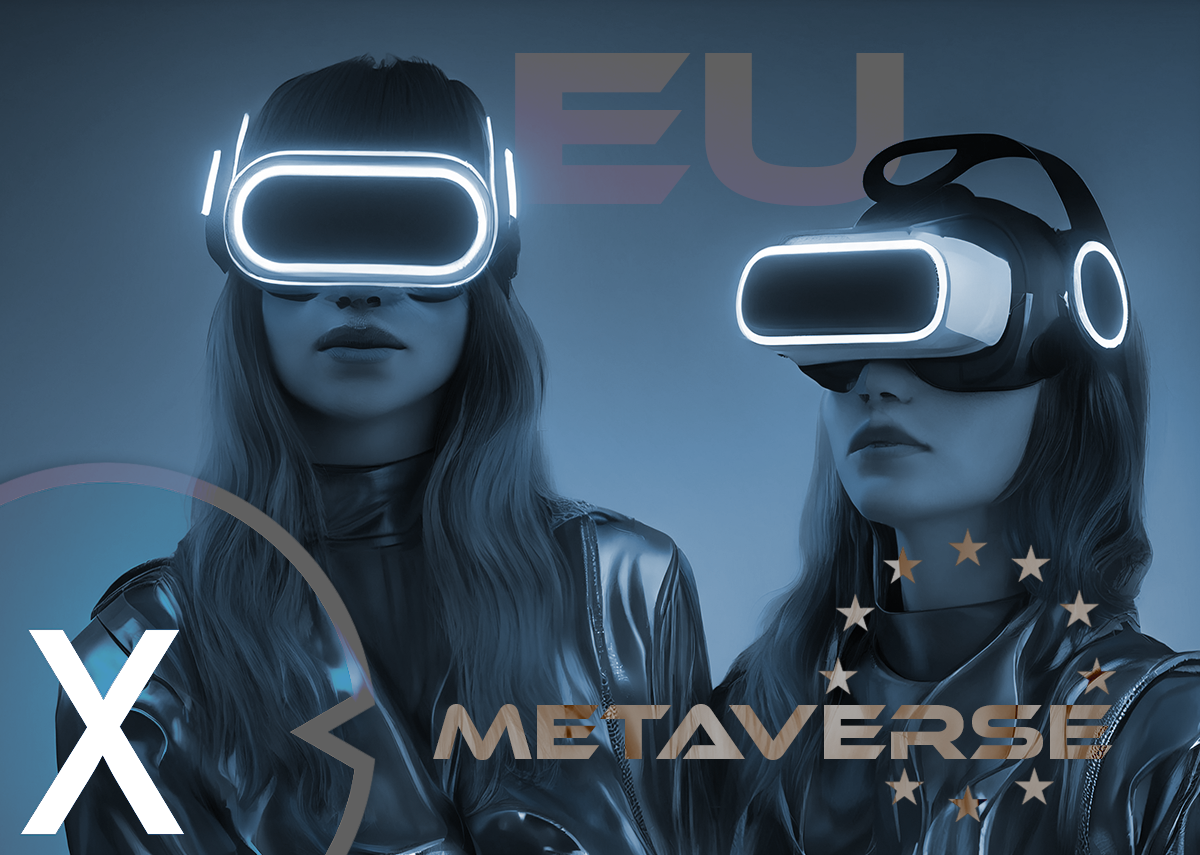
Europe's Extended Reality & Metaverse: First-Mover Action Plan of the EU Commission - Image: Xpert.Digital
📜🌍 Europe in Metaverse Competition and Metaverse Standards: Principles, Goals, Sovereignty and Influence
🌐 The European Union (EU) has the opportunity to take a pioneering role in the development and standardization of Web 4.0 and Metaverse technologies. Through strategically oriented action planning, the EU could not only act as a “first mover”, but also set the course for digitization based on European values. Aspects such as openness, sustainability and accessibility are of crucial importance.
🚀 The importance of Web 4.0 and the Metaverse
Web 4.0 and the Metaverse represent the next big leap in digital development. Where the previous web was predominantly information-centric, Web 4.0 enables a much more connected, interactive and intelligent internet. In particular, the use of AI, blockchain and other advanced technologies is ushering in a new era of connectivity and interaction.
📜 With a proactive action plan, the European Union (EU) could achieve a significant advantage here as a “first-mover” and determine basic principles as well as standards for Web 4.0 and virtual worlds. These standards should reflect European values and at the same time promote openness, sustainability and accessibility.
🎯 The European Commission's proposal aims to get a head start by developing a clear strategy and proposing concrete actions for the design of Web 4.0 and virtual worlds. The following principles should be observed:
1. Reflection of EU values, principles and fundamental rights
The standards should reflect the fundamental values, principles and fundamental rights of the EU. This means that they should be in line with European values such as democracy, human rights and the rule of law.
2. Use of open and highly distributed technologies and standards
The standards should be based on open and highly distributed technologies and standards to ensure interoperability. This means systems and applications can communicate seamlessly with each other, regardless of provider or platform.
3. Integrating sustainability, inclusion and accessibility
The technological standards should have sustainability, inclusion and accessibility as essential components at their core. This means that environmental impacts should be minimized, the participation of all citizens should be enabled and barriers for people with disabilities should be reduced.
🌍 The emphasis on creating Metaverse standards is commendable given the increasing importance of virtual worlds and Web 4.0. However, Europe faces the challenge of gaining influence in an area currently dominated by non-European companies. This raises questions about the EU's competitiveness and sovereignty.
🤝 To address this challenge, the European Commission should proactively participate in international organizations to actively shape the development of Metaverse standards. This could help defend European interests and ensure that standards reflect EU needs and values.
💼 Furthermore, the EU should consider making public investments in gigabit infrastructure, particularly in the development of edge nodes. This infrastructure is critical to ensuring powerful and reliable connectivity for virtual worlds and Web 4.0. By expanding edge nodes, the EU can strengthen its technological sovereignty and create a robust infrastructure for the digital worlds of the future.
🔗 Creating standards for Web 4.0 and virtual worlds is a strategic challenge for the EU. However, by proactively engaging in international discussions and investing in the necessary infrastructure, the EU can use its influence and ensure that these new technologies are developed in line with European values and interests. This could lay the foundation for a successful digital future for Europe.
📣 Similar topics
- 🌐 Europe's digitalization: Web 4.0 and Metaverse
- 🚀 The EU as a pioneer in metaverse development
- 💡 Web 4.0: The future of the Internet
- 🌍 European values in Web 4.0
- 🤖 AI and the Web 4.0: A European perspective
- 📝 Metaverse standards and the EU
- 🌐 International collaboration in the Metaverse
- 🌱 Sustainability in Web 4.0
- ♿ Accessibility in the Metaverse: European Initiatives
- 💰 Investing in Europe’s digital future
#️⃣ Hashtags: #Web4.0 #Metaverse #EU #Digitalization #Sustainability
🌐 Metaverse development in Germany, EU, USA, China, Japan and worldwide - exciting XR technology as an economic factor?
XR technology and the concept of the Metaverse are still in their early stages of development, but their potential as an economic driver is enormous. Companies that are able to adapt and leverage these technologies are likely to have a competitive advantage. At the same time, they offer consumers the opportunity to immerse themselves in a new, immersive world that can transform everything from social interactions to professional tasks. As these technologies continue to evolve, it is important to consider ethical and regulatory issues to ensure that the benefits of the Metaverse and XR technology can be enjoyed as broadly as possible. Ultimately, the success of this digital ecosystem will depend on how well different actors – governments, businesses and civil society – can work together. This is an exciting time for the Metaverse and XR technology, and we can't wait to see what innovations and applications lie ahead in the next few years.
More about it here:
🌐 The EU Metaverse Strategy: Web 4.0 and virtual worlds
📚 Background
The concept of virtual worlds, also known as “meta -verse”, has become significantly more important in recent years. Thanks to advanced technology and an increasingly networked world, virtual worlds can now be implemented technically and economically. These digital, immersive environments offer both opportunities and risks and are expected to influence the interaction of individuals and companies in Europe in the next generation of the Internet, also as Web 4.0. In view of these developments, a comprehensive political review is essential.
🌐 The Importance of the Metaverse
The Metaverse is more than just a futuristic idea. It represents a new stage of digital evolution in which real and virtual worlds merge. In this virtual reality, people can interact, do business, learn and work. The Metaverse promises a radical change in the way we live and work.
🇪🇺 The objectives of the European Commission
The European Commission has recognized that the metaverse represents a transformative force. Their main goal is to maximize the chances and at the same time minimize the risks associated with the development of Web 4.0 and virtual worlds. The Commission pursues a “first mover” approach to ensure that Europe plays a leading role in this emerging digital landscape.
📊 Strategy development
To achieve these goals, the European Commission plans to formulate a comprehensive strategy. This strategy will cover various aspects including:
1. 🚀 Competencies
Promoting skills in the metaverse and virtual worlds is crucial. This includes training professionals, developing skills and creating an environment that encourages innovation.
2. 🏭 Industrial ecosystems
Creating healthy and competitive industrial ecosystems is a key aspect. This will promote collaboration between companies, research institutes and governments.
3. 📜 Governance
Metaverse governance is complex and requires clear rules and standards. The European Commission will develop governance proposals to protect the interests of citizens and businesses.
🤝 Those affected
The impact of the Metaverse extends to different groups:
1. 🌍 Member States
EU member states will benefit from the strategy as they will have the opportunity to establish themselves as centers for metaverse development and innovation.
2. 🏢 Company
Companies, particularly in the technology, entertainment and education sectors, will be able to explore new business opportunities in the metaverse.
3. 👩💼 Employees
New work opportunities in the metaverse could emerge and the world of work could fundamentally change.
4. 👥 EU citizens
Citizens of the European Union will benefit from the benefits of the Metaverse, but at the same time they should benefit from adequate safeguards and data protection regimes.
📝 Further development
The development of the Metaverse and Web 4.0 is an exciting but also complex challenge. The European Commission has recognized that smart strategy and governance are crucial to seize the opportunities and minimize the risks. This approach will lead Europe towards a promising digital future in which the metaverse plays a central role.
📣 Similar topics
- 🌐 The Future of the Internet: Web 4.0 and the Metaverse
- 💼 The economic impact of the Metaverse on companies
- 🏛️ The European Commission and its Metaverse strategy
- 🚀 The Transformative Power of the Metaverse: Opportunities and Risks
- 📚 Education in the Metaverse: New Ways to Learn
- 🤝 Collaboration between companies in the metaverse
- 📜 The Governance of the Metaverse: Rules and Standards
- 🇪🇺 Europe as a pioneer in the metaverse
- 💼 Work Opportunities in the Metaverse: The Future of Work
- 🧑💼 Privacy in the Metaverse: Civil Rights and Security
#️⃣ Hashtags: #Metaverse #Web4 #EuropeanCommission #DigitalFuture #Innovation
🌍 Europe's path to augmented reality: How the EU Commission's pioneering action plan puts Europe at the forefront of Metaverse and Web 4.0 standards 🚀
The European Union (EU) is addressing the challenges of the digital age and the ever-changing technological landscape through its First-Mover Action Plan. This plan particularly focuses on the development of Extended Reality (XR), Metaverse and Web 4.0 standards. Through a proactive approach, the EU Commission wants to put Europe in a pioneering role in the global context. But what does that mean specifically?
🌟 Augmented reality (XR) as a catalyst for change
Augmented reality (XR) includes technologies such as virtual reality (VR), augmented reality (AR) and mixed reality (MR). The EU sees great potential in these technologies, particularly in the areas of education, healthcare and Industry 4.0. Therefore, significant investments in research and development (R&D) are planned to advance XR solutions for practical applications.
🌐 The Metaverse as the next digital frontier
The Metaverse represents another key component of the action plan. It is a collective, virtual shared space created through the convergence of physical virtual reality. In the EU utopia, the metaverse could not only be a place for social interaction, but also enable new forms of digital commerce, education and collaboration. To this end, the EU Commission would like to promote platforms that guarantee data protection and digital sovereignty.
🌐🧠 Web 4.0 and the intelligent Internet
Web 4.0, often referred to as an “intelligent web”, is the next stage of development of the Internet that aims at the use of AI and other advanced technologies. The action plan provides to facilitate the transition to Web 4.0 by establishing open standards and a robust infrastructure. In particular, the focus is on the interoperability between different systems and platforms.
📜🤝 Regulation and Ethics
Another important aspect is the legal framework. The EU Commission's action plan contains guidelines and standards for ethical practices, particularly in the area of AI and data use. The goal is to bring Europe to the forefront not only technologically but also ethically.
🌐🤝 Networking and cooperation
Finally, international cooperation is a cornerstone of the action plan. The EU seeks partnerships with other countries and international organizations to advance developments in XR, Metaverse and Web 4.0. The integration of start-ups and SMEs into international networks is also planned.
🚀🌍 First-mover action plan
Overall, the EU Commission's First-Mover Action Plan is a comprehensive and ambitious undertaking that is intended to advance the development of key technologies in Europe. Through a combination of financial support, research and development, legal regulation and international cooperation, the EU aims to strengthen its position as a global innovation leader.
📣 Similar topics
- 🌐 Europe's push into the digital future: The EU Pioneer Action Plan for XR and Metaverse
- 🚀 The EU Commission on the way to the XR revolution
- 🌟 Metaverse: The EU's vision for the digital future
- 🧠 Web 4.0: Europe's intelligent Internet strategy
- 📜 EU Action Plan: Regulation and Ethics in the XR World
- 🌍 International cooperation: EU's XR initiative in a global context
- 💡 EU's First-Mover Action Plan: Europe's path to technology leadership
- 🏛️ The EU Commission is shaping the XR industry
- 💻 Web 4.0: Europe's path to the AI-driven future
- 🤝 Partnerships and innovation: EU's XR plan for the world
#️⃣ Hashtags: #XR #Metaverse #Web4.0 #EU #Innovation
🌐 Europe's role in the extended reality sector: A pioneering EU action program to establish itself in the Metaverse and Web 4.0 guidelines
The European Union (EU) has the opportunity to take a pioneering role in the development and standardization of Web 4.0 and meta-verse technologies. Through strategically oriented action planning, the EU could not only act as a “first mover”, but also set the course for digitization based on European values. Aspects such as openness, sustainability and accessibility are of crucial importance.
🌟 The importance of Web 4.0 and the Metaverse
Web 4.0 and the Metaverse represent the next big leap in digital development. Where the previous web was predominantly information-centric, Web 4.0 enables a much more connected, interactive and intelligent internet. In particular, the use of AI, blockchain and other advanced technologies is ushering in a new era of connectivity and interaction.
🌍 European values as a guide
The key to the successful introduction of Web 4.0 and Metaverse technologies lies in the integration of European values. These include, among other things, respect for privacy, the right to freedom of expression and the protection of minorities. By embedding these values into technological standards, the EU can ensure that the new digital world is not only functional but also ethical.
🔓 Openness and transparency
In this context, openness refers to the free availability of information, open interfaces and the possibility for everyone to take part in the further development of the website. This also means that the EU should work towards avoid proprietary systems and so -called “Walled Garden”, which could restrict free access and interoperability.
🌿 Sustainability as an imperative
In the context of digital transformation, sustainability must be viewed both ecologically and socially. Environmental sustainability includes the energy-efficient design of data centers and networks. Social sustainability, on the other hand, focuses on creating an inclusive digital society in which all citizens have access to education and technology.
🌐 Accessibility for everyone
Another important pillar of the European action plan should be accessibility. Technology should be designed so that it can be used by all citizens, regardless of age, gender or physical limitations. For example, barrier-free user interfaces and the promotion of technologies for people with disabilities could play a role here.
🔍 The role of the EU Commission
In order to be a pioneer in Web 4.0 and Metaverse development, the EU Commission must make targeted investments in research and development. It should also promote coordinated cooperation between member states and establish public-private partnerships to accelerate technology transfer. A Europe-wide set of rules could also help ensure that standards and guidelines are applied uniformly.
🚀 Proactive planning and investment
The EU has a unique opportunity to lead the way in Web 4.0 and Metaverse through proactive planning and investment in cutting-edge technologies. In doing so, it should ensure that European values and principles such as openness, sustainability and accessibility are firmly anchored in these new digital worlds. This is the only way to guarantee that the digital transformation takes place in accordance with the needs and values of the European population.
📣 Similar topics
- 🌐 Europe's digitization dreams: Web 4.0 and the Metaverse
- 💡 The Future of the Internet: Web 4.0 and Metaverse Technologies
- 🇪🇺 The EU as a pioneer: Web 4.0 and metaverse development
- 🤖 Artificial Intelligence in the Metaverse: Opportunities and Challenges
- 🌍 European values in the digital age: ethics and technology
- 🌱 Sustainability in Web 4.0: Ecological aspects of digitalization
- ♿ Technology for All: Accessibility in the Metaverse
- 💼 The role of the EU Commission in the Web 4.0 revolution
- 🚀 Europe's path to the digital future: strategies and investments
- 🗣️ Web 4.0: Openness and transparency for a networked society
#️⃣ Hashtags: #Web4.0 #Metaverse #EuropeanUnion #Sustainability #Digitalization
Germany is the leader here: 'Iteration Metaverse' solutions
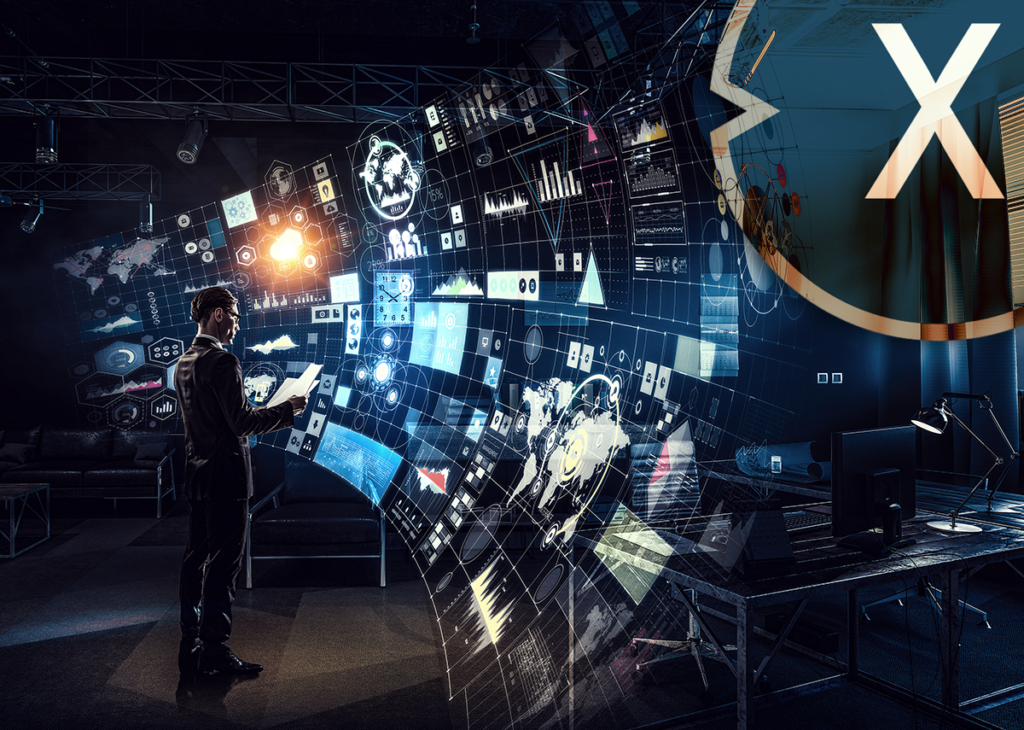
Germany is the leader here: Iterative Metaverse solutions with XR technologies – Image: Xpert.Digital
An iterative metaverse solution is an approach to developing and improving metaverse technologies through incremental iterations and adjustments. This approach involves deriving smaller, efficient solutions from large metaverse visions that build on the experiences and insights from earlier development phases. The focus is on making continuous improvements and adapting technologies to changing requirements.
More about it here:
🗒️ Xpert.Digital: A pioneer in the field of extended and augmented reality
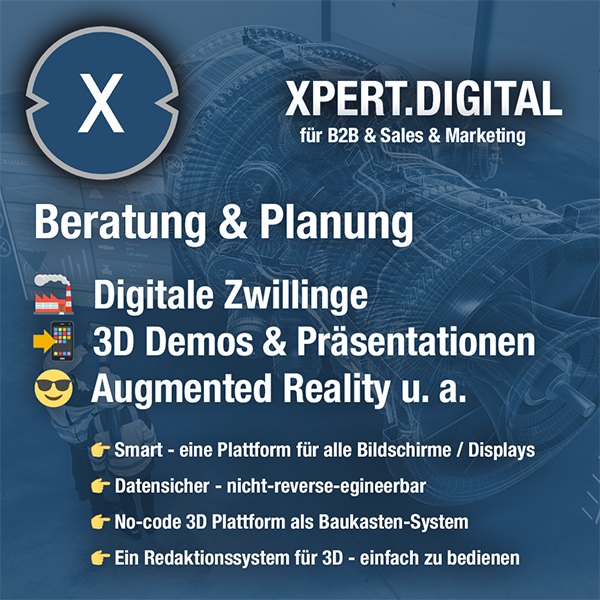
We are there for you - advice - planning - implementation - project management
Xpert.Digital - Pioneer Business Development
Smart Glasses & KI - XR/AR/VR/MR industry expert
Consumer metaverse or meta -verse in general
If you have any questions, further information and advice, please feel free to contact me at any time.
I would be happy to serve as your personal advisor.
You can contact me by filling out the contact form below or simply call me on +49 89 89 674 804 (Munich) .
I'm looking forward to our joint project.
Xpert.Digital - Konrad Wolfenstein
Xpert.Digital is a hub for industry with a focus on digitalization, mechanical engineering, logistics/intralogistics and photovoltaics.
With our 360° business development solution, we support well-known companies from new business to after sales.
Market intelligence, smarketing, marketing automation, content development, PR, mail campaigns, personalized social media and lead nurturing are part of our digital tools.
You can find out more at: www.xpert.digital - www.xpert.solar - www.xpert.plus



